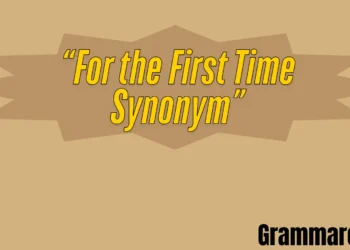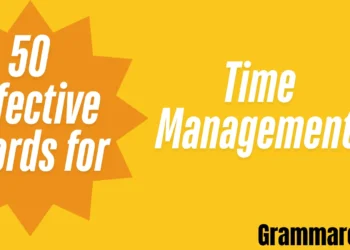“Pleased to announce” is a warm and professional phrase often used to announce good news and events. The phrase has an elemental element of pride, gratitude, and optimism that adds warmth to the words. Because it can be used for formal and informal announcements, it diminishes the sense of formality that exists in some more neutral phrases. More importantly, “pleased to announce” is not a wordy phrase; unlike most phrases, it inherently conveys joyfulness and excitement through the verb “pleased,” while still maintaining a level of professionalism in its meaning to share news. The professional and polite nature of “pleased to announce” allows the speaker to communicate in a way that conveys excitement while upholding professionalism. This natural enthusiasm and excitement will enable the announcement to come across as genuinely uplifting and positively received by the audience, especially when compared to more neutral or qualified language.
What Does “Pleased to Announce” Mean?
“Pleased to announce” is a formal phrase that carries a warm feeling and denotes credit to a milestone, essential news, or announcement. It conveys pride, joy, and optimism while maintaining a professional tone and respectful form. In any context, whether a personal setting, business, or social context, “pleased to announce” offers an impression that the speaker was eager to share something significant. In this context, it highlights both the importance of the announcement and the emotions the speaker may be feeling.
It is a dignified way to celebrate progress, achievements, or updates with confidence, composure, and authority.
Is It Professional/Polite to Say “Pl
Eased to Announce”?
Yes, “pleased to announce” is a professional and polite way to express this. It is commonplace in all types of announcements in the corporate world (announcements, press releases, organizational updates, etc.).Even when writing about a personal milestone, such as a new job, you may encounter this phrase. “Pleased to announce” is a good phrase to express enthusiasm and excitement, but not excessive enthusiasm that may put off the reader.
Advantages and Disadvantages of Using “Pleased to Announce”
Pros
- Positive, friendly, and cheerful.
- Sounds professional and sophisticated.
- Appropriate for formal and semi-formal settings.
- A great way to build excitement while still maintaining a serious tone.
- A well-understood, common phrase.
Cons
- It can sound too formal in casual announcements.
- Can sound nervously overused to incorporate announcements.
- It doesn’t have the warmth of some other casual options.
- Not for extremely difficult or heartbreaking news.
- It can sound self-promotional if overdone.
When to Use “Pleased to Announce”?
Pleased to announce that it’s best that “”is used when sharing good news & positive milestones, such as company news about achievements, new product launches, partnerships, promotions, personal &/or company successes. It can be used in various contexts, including newsletters, press releases, LinkedIn updates, formal emails, and personal life events such as engagements, graduations, or other significant milestones. We are pleased to announce that this phrase should be used when we want to maintain a respectful yet celebratory tone. In summary, it is a concise way of sharing good news & positive information that deserves celebration.
What Tone Does “Pleased to Announce” Have?
The Tone of “pleased to announce” is formal, friendly, and celebratory. It strikes a good balance between respectful professionalism and injecting enough personality to exhibit enthusiasm. This is fantastic because we do not want it to sound casual like “super excited to share”, or as rigid as “this is to inform.” Instead, it sits firmly on the spectrum, helping people execute good news deliverables.
Professional Alternatives of “Pleased to Announce”
1. Glad to let you know
Meaning: You are pleased to share positive information.
Definition: A proper but friendly expression meant to convey good news.
Explanation: Professional and courteous, engaged in direct communication.
We’re pleased to inform you that your reservation has been successfully verified.
Best Use: Official confirmations, customer updates.
Worst Uses: Informal or unimportant circumstances.
Tone: professional, kind, upbeat.
2. Thrilled to share with you
Meaning: You are eager to share something new with others.
Definition: An innovative approach to express enthusiasm in presenting worth.
Explanation: It gives announcements warmth and energy.
We’re thrilled to share our summer line with you.
Best Use: Marketing initiatives, consumer-facing communications.
Worst Use: Official corporate communications.
Tone: Customer-friendly, promotional, upbeat.
3. Glad to share
Meaning: You get to announce something and feel a sense of privilege.
Definition: An official, polite approach to deliver significant information.
Explanation: It mixes grandeur with modestness.
Example: We were honored to partner with UNICEF.
Best Use: Awards, partnerships, and projects of collaboration.
Worst Use: Minor or informal changes.
Tone: Appreciating, official, courteous.
4. Excited to reveal
Meaning: You’re bursting with excitement to show something truly unique.
Definition: A daring statement sometimes connected to significant occasions or launches.
Explanation: It generates suspense and intrigue.
Example: We were ecstatic to reveal our new headquarters.
Best Use: product launches, brand reveals, major gatherings.
Worst Use: Small or administrative changes.
Tone: Celebratory, dramatic, strong.
5. Gladly showing
Meaning: You are happy to exhibit or present anything.
Definition: Announcing something in a bright and upbeat manner.
Explanation: It’s more modest than happy or proud.
Example: I am glad to share our quarterly results.
Best Use: Company meetings, small product launches, and educational contexts.
Worst Use: Big accomplishments requiring more dramatic phrasing.
Tone: congenial, respectful, somewhat formal.
6. Very happy to inform you
Meaning: You find delight in personally reporting information.
Definition: An informal, friendly means of providing updates.
Explanation: It maintains the enthusiasm but is less formal.
Example: I’m pleased to announce that our reach is expanding to new locations!
Best Use: Friendly updates, team communication.
Worst Use: Purely formal legal or corporate settings.
Tone: informal yet professional, friendly, interesting.
7. Pleased to tell
Meaning: You enjoy sharing good news.
Definition: A polished and formal announcing phrase.
Explanation: Understanding: Often included in formal letters, notices, or offers.
Example: We are pleased to inform you that you have made the shortlist.
Best Use: HR letters, professional notifications, client updates.
Worst Use: In personal and informal environments.
Tone: Formal, polished, courteous.
8. Gladly shares
Meaning: You are happy with your news presentation.
Definition: A phrase meant to convey satisfaction and pride with assurance.
Explanation: It draws attention to honors and successes.
Example: We are pleased to provide our most recent sustainability report.
Best Use: Highlighting individual successes and corporate accomplishments.
Worst Use: Simple or light notes.
Tone: Assured, businesslike, encouraging.
9. Happy to commemorate
Meaning: You are happy to mark an event.
Definition: A word stressing group jubilation.
Explanation: It expresses enthusiasm not just for news but also for noting accomplishments.
We’re excited to share with you our 25th anniversary celebration!
Best Use: milestones, business wins, anniversaries.
Worst Use: Declarations of sorrow or sensitive nature.
Tone: upbeat, merry, holiday.
10. Glad to impart
Meaning: You find great delight in sharing something.
Definition: A clean yet accessible statement for announcements.
Explanation: It combines optimism with formality.
Example: This year, I will be a board member.
Best Use: Personal acknowledgements, professional updates.
Worst Use: For extremely informal or minor updates.
Tone: Cheerful, formal-casual, encouraging.
11. Glad to reveal
Meaning: freely and openly sharing information with pleasure.
Definition: A happy statement to reveal significant or positive information.
Explanation: This phrase implies you’re happy to discuss the update and seems welcoming and approachable.
Example: We are pleased to showcase our summer collection for next month.
Best Use: Friendly workplace news, brand launches, or informal corporate changes.
Worst Use: Highly sensitive or critical material, such as layoffs or emergencies.
Tone: Friendly, bright, and encouraging.
12. Enthusiasm to reveal
Meaning: excitedly sharing information.
Definition: A more enthusiastic method to show something that had been hidden before.
Explanation: It implies that the information is unusual or eagerly awaited and is finally ready to be disseminated.
Example: We were happy to announce our impending strategic alliance.
Best Use: Business updates, project reveals, or client communications are ideal for this purpose.
Worst Use: Formal legal or financial issues needing neutrality.
Tone: Energetic, interesting, somewhat formal.
13. Happy to talk
Meaning: Enthusiastic information sharing.
Definition: An official but energetic approach to communicating anything significant.
Explanation: It highlights the importance of responsibility and the excitement of presenting news.
Example: We are delighted to share the growth of our offerings into three additional areas.
Best Use: Team notifications, newsletters, corporate communications.
Worst Use: In personal or informal situations, as it may come across as overly formal.
Tone: Official but still passionate.
14. Honored to be here
Meaning: A thankful and proud introduction to something.
Definition: A polite method to disseminate information, particularly if it feels like a success.
Explanation: This line is most effective when the announcement is well-known or prestigious.
Example: Honored to give this year’s Employee of the Year prize.
Best Use: Awards, celebrations, honors, or significant professional achievements.
Worst Use: Regular updates, tiny or informal news.
Tone: Formal, respectful, celebratory.
15. Looking forward to the update
Meaning: Eagerly distributing a fresh discovery.
Definition: A cheerful, vivacious approach to give fresh details.
Explanation: This saying is particularly effective for maintaining continuous communication when changes occur regularly.
We are thrilled to provide you with an update on the development of our neighborhood project.
Best Use: Progress reports, newsletters, or continuous projects.
Worst Use: Big milestone launches, where more forceful terminology like “announce” fits better, are the worst Use of the latter.
Tone: Warm, casual, engaging.
16. Excitement over confirmation
Meaning: Officially validating or completing favorable news.
Definition: A technique to convey happiness and, at the same time, ensure certitude.
Explanation: Ideal for verifying information that individuals have been expecting.
Example: We were thrilled to confirm our participation in this year’s worldwide summit.
Best Use: Signings, event confirmations, or contract closures.
Worst Use: Speculation or early-stage declarations.
Tone: Confident, excited, encouraging.
17. Happy to share
Meaning: Friendly and warm sharing of news.
Definition: A straightforward and easy technique to share positive news.
Explanation: It’s perfect for informal or friendly comments because it seems less formal.
Example: We are thrilled to announce the debut of our latest app update.
Best Use: Social media posts, pleasant company updates.
Worst Use: Announcements about significant business or official events.
Tone: Easygoing, friendly, light.
18. Pleased to show
Meaning: To proudly offer something significant.
Definition: A polite term that stresses achievement.
Explanation: It highlights both success and appreciation for achieving this milestone.
Example: We are pleased to share our annual report, which highlights record growth.
Best Use: Product launches, award presentations, milestone events.
Worst Use: Routine updates or little news releases.
Tone: Respectful, assured, festive.
19. So happy to share with you
Meaning: Sharing something unique with delight.
Definition: A sophisticated but amusing approach to presenting a product.
Explanation: This statement lets the audience know they are valued and included.
We are delighted to introduce our latest collection.
Best Use: Product introductions, consumer updates, marketing communications.
Worst Use: Legal or administrative notifications.
Tone: Customer-focused, happy, and pleasant.
20. Happy to make a formal declaration
Meaning: Declaring anything significant with confidence.
Definition: Clarifying the formal nature of an announcement draws attention to it.
Explanation: When individuals have been waiting for confirmation, this word is perfect.
Example: We are pleased to announce the formal opening of our New York office.
Best Use: Public statements, company growth, events.
Worst Use: Unofficial or personal updates.
Tone: Professional, congratulatory, assured.
21. Excited to tell the news
Meaning: Talking enthusiastically about reporting good news.
Definition: An adaptable statement for announcements in business as well as personal settings.
Explanation: It emphasizes both excitement and the significance of the message.
Example: We’re excited to announce that we’ve just won an award.
Best Use: Celebrating the company’s achievements, awards, and joyful news.
Worst Use: Informal or funny posts.
Tone: Happy, celebratory, inspiring.
22. Glad to honor
Meaning: Commemorating a success or landmark using notes of delight.
Definition: A friendly, communal approach of acknowledging achievement.
Explanation: It’s ideal for anniversaries or successes since it emphasizes celebration.
Example: Celebrating five years of service with our valued clients brings us great joy.
Best Use: Milestones, anniversaries, successes.
Worst Use: Regular or neutral updates.
Tone: Optimistic, inviting, warm.
23. Thankful to show
Meaning: Sharing something fresh with appreciation and respect.
Definition: A Formal introduction’s polished phrase.
Explanation: It shows both privilege and delight in unveiling something fresh.
Example: We were pleased to present our headliner speaker at the conference.
Best Use: Official gatherings, product or speaker introductions.
Worst Use: Unofficial or everyday updates.
Tone: Formal, polite, polished.
24. Unveiling with pride
Meaning: Unveiling something important with pride.
Definition: A strong statement expressing trust in the news that is distributed.
Explanation: Perfect for major revelations or significant milestones.
Example: We are honored to present our fresh visual identity and emblem.
Best Use: Rebranding, official corporate updates, official launches.
Worst Use: Informal sharing or daily correspondence.
Tone: Formal, joyful, assured.
25. Excited to announce
Meaning: Announcing anything very passionately.
Definition: A striking expression meant to add weight and vigor to a statement.
Explanation: Works most effectively if the news is important and meaningful.
Example: We are delighted to announce our entry into fresh sectors.
Best Use: Big business success, launches, or prominent headlines.
Worst Use: Minor, informal, or everyday revisions.
Tone: Powerful, lively, dramatic.
26. Thrilled to introduce
Meaning: Marking the beginning of something fresh.
Definition: Ideal for product or service launches, a passionate and straightforward statement.
Explanation: It expresses both momentum and excitement.
Example: Next month, we are excited to introduce our new training course.
Best Use: New projects, events, product releases.
Worst Use: Sensitive or critical updates.
Tone: Upbeat, forward-looking, vivacious.
27. Excited to reveal
Meaning: Joyful and content reporting of events.
Definition: A tried-and-true, refined approach to deliver a formal but happy declaration.
Explanation: Suitable in both business and personal settings.
Example: GreenTech’s new alliance with us makes us quite excited.
Best Use: Celebratory updates, launches, collaborations.
Worst Use: Negative or critical updates.
Tone: Polished, upbeat, inspiring.
28. Excited to help spread the word
Meaning: Openly and enthusiastically distributing information.
Definition: An informal and vivacious approach to get people into your invitation.
Explanation: Ideal for social media or casual updates.
Example: We were thrilled to help our next local event gain some attention.
Best Use: Social media updates, informal projects, local news.
Worst Use: Extremely formal or business settings.
Tone: Joyful, informal, energetic.
29. Thrilled to emphasize
Meaning: Emphasizing anything with enthusiasm.
Definition: A good approach to draw attention to qualities or accomplishments.
Explanation: Best to highlight details or achievements deserving of appreciation.
Example: We were thrilled to underline our team’s most recent creative efforts.
Best Use: Recognition posts, spotlights, newsletters.
Worst Use: Official or big product launches.
Tone: Appreciating, friendly, inspiring.
30. Glad to present
Meaning: Sharing a fresh idea with enthusiasm.
Definition: A friendly and cheerful way to introduce something new.
Explanation: Makes greetings seem inviting and pleasant.
Example: This month, we are delighted to welcome new team members.
Best Use: Community updates, little launches, team introductions.
Worst Use: Formal accolades or important corporate occasions.
Tone: Cordial, welcoming, friendly.
31. Thrilled to join you in celebration
Meaning: Sharing happiness over a milestone or achievement with others.
Definition: A word or statement expressing excitement while also inviting others to participate in the celebration.
Explanation: It prioritizes group happiness over personal pride, making it an inclusive approach.
Example: We are thrilled to celebrate five years of development together with you.
Best Use: anniversaries, client milestones, team accomplishments.
Worst Use: For little or purely formal changes.
Tone: Cheerful, welcoming, festive.
32. Excited to offer
Meaning: Eagerly introducing something significant.
Definition: A sophisticated but upbeat phrase used when introducing a fresh concept or update.
Explanation: It draws the news as something worthy of action and attention.
Example: We were thrilled to present our latest sustainability project.
Best Use: Communicating upcoming initiatives or ideas to others.
Worst Use: For informal, daily changes.
Tone: Professional, passionate in Tone.
33. Happy to verify
Meaning: Assuring someone you can verify positive news.
Definition: Showing pride in a refined manner when verifying facts or progress.
Explanation: It emphasizes an accomplishment and implies dependability and confidence.
Example: We are thrilled to verify our development into three more cities.
Best Use: milestones, successes, changes in growth.
Worst Use: Small or preliminary disclosures.
Tone: Confident, cheerful in Tone.
34. Thrilled to share on
Meaning: Showing anything that was once hidden or not shared.
Definition: A more intimate and human-oriented term for bulletins.
Explanation: It brings individuals closer by indicating honesty and transparency.
Example: I’m happy to discuss my journey toward launching this project.
Best Use: Behind-the-scenes news and personal stories are top uses.
Worst Use: Highly official business records.
Tone: human, sincere, engaging.
35. Happy to reveal
Meaning: Sharing vital knowledge with happiness.
Definition: Revealing information in a sleek and somewhat formal approach.
Explanation: It gives business announcements a polished edge.
Example: We are thrilled to announce GreenTech as our next collaboration partner.
Best Use: alliances, teamwork, tactical updates.
Worst Use: Informal or laid-back situations.
Tone: Formal, upbeat Tone.
36. Gladly distributing the word
Meaning: Distributing data in an upbeat and inclusive manner.
Definition: An informal but friendly expression for announcements.
Explanation: Perfect for less severe updates, it seems friendly and casual.
Example: I’m thrilled to announce that our app has just surpassed 1 million downloads!
Best Use: Social media, welcoming updates, community involvement.
Worst Use: For legal or formal notifications.
Tone: Approachable, informal, happy.
37. Official and enthusiastic to make
Meaning: Informing people that something is now finished.
Definition: A phrase suggesting delight at going from unofficial to confirmed status.
Explanation: It stresses a change from uncertainty to certainty in the planning process.
Example: We were thrilled to formally announce our merger with Global Solutions.
Best Use: Settled contracts, verified launches.
Worst Use: Hypothetical or unconfirmed corrections.
Tone: Assured, festive.
38. Excited to present
Meaning: Presenting anything with zeal and pride.
Definition: An energetic approach to draw attention to fresh work or success.
Explanation: It’s ideal if you want to emphasize originality or effort.
Example: We were excited to present our fresh product line at the expo.
Best Use: Product demonstrations, exhibitions, events.
Worst Use: Quiet or inconspicuous changes are the worst Use.
Tone: ebullient, assertive, proud.
39. Pleased to announce
Meaning: Joyful sharing of a verified fact.
Definition: The most straightforward approach to make an official announcement of something.
Explanation: It is adaptable since it combines dignity with optimism.
Example: By 2030, we will proudly demonstrate our commitment to clean energy.
Best Use: Corporate pledges, policy changes.
Worst Use: Casual social media posts.
Tone: Refined, upbeat, forceful.
40. Happy to discuss
Meaning: Casually presenting anything fresh.
Definition: A pleasant, accessible way to communicate changes.
Explanation: It’s less official than an announcement, but it seems natural and interesting.
Example: I’m eager to discuss the next career move for me.
Best Use: Social media updates, informal communications.
Worst Use: Solely legal or commercial announcements.
Tone: Casual, interesting.
41. Delighted to share updates
Meaning: Sharing polished and upbeat updates.
Definition: An even statement blending energy with decorum.
Explanation: It positions the news as significant.
Example: We are overjoyed to share the word of our most recent scholarship effort.
Best Use: Company changes, honors, public relations.
Worst Use: Extremely personal or informal situations.
Tone: Official but cheerful.
42. Happy to share
Meaning: openly and honestly exchanging knowledge.
Definition: A business phrase meant to highlight success or deals.
Explanation: It combines honesty with pride to produce powerful headlines.
Example: We are happy to share our best income year to date.
Best Use: Financial reports, performance results: top Use.
Worst Use: Unserious or informal updates.
Tone: Expert, assertive.
43. Happy to celebrate
Meaning: Celebrating a success or a milestone with pleasure.
Definition: A sincere expression said when celebrating success.
Explanation: It highlights the joy of being with others.
Example: We are glad to mark ten years with you.
Best Use: anniversaries, successes, collaborations.
Worst Use: Regular or petite changes.
Tone: Happy, inclusive, celebratory.
44. Eager to shed light on
Meaning: Emphasizing something or drawing attention to it.
Definition: A phrase implying recognition and importance.
Explanation: It presents the news as anything worth highlighting.
We were thrilled to highlight the outstanding work our teams had accomplished.
Best Use: Employee appreciation and stress management programs.
Worst Use: Legal or extremely formal announcements.
Tone: Hopeful and flattering.
45. Excited to report development
Meaning: Sharing encouraging news regarding current projects.
Definition: A phrase conveying hope and development.
Explanation: It stresses ongoing development and improvement.
Example: For instance, we were ecstatic to report progress on our most recent research effort.
Best Use: Progress reports, continuous projects.
Worst Use: Ultimate or extraneous communications.
Tone: Hopeful, optimistic.
46. Happy to party with each other
Meaning: Welcoming others to share in a common success.
Definition: A phrase celebrating community and inclusion.
Explanation: It implies shared happiness rather than personal happiness.
Example: We were thrilled to gather for our annual appreciation banquet.
Best Use: Team meetings and local landmarks are excellent applications.
Worst Use: Personal successes.
Tone: Inclusive, happy, celebratory.
47. Happy to exhibit
Meaning: Presenting achievements or work with great delight.
Definition: A more informal, lighter substitute for now.
Explanation: It’s ideal for situations that require positivity without stiffness.
Example: For instance, I’m excited to share my fresh photography portfolio.
Best Use: Top uses include individual projects, creative endeavors, and informal company updates.
Worst Use: In extremely formal business or financial environments.
Tone: Affectionate, accessible, confident.
48. Glad to revise
Meaning: Proudly disseminating fresh data.
Definition: An elegant and professional way to provide changes.
Explanation: It maintains a formal tone while also signaling advancement and development.
For instance, we are pleased to inform you about the expansion of our offerings.
Best Use: Progress notes, accomplishments of a company.
Worst Use: Personal daily updates.
Tone: Professional, self-assured.
49. Delighted to reveal
Meaning: Giving anything legally and vigorously.
Definition: An energetic approach to highlight advancement or facts.
Explanation: It expresses enthusiasm when delivering a formal announcement.
For instance, we are delighted to share our latest development in the field of medicine.
Best Use: new items, launches, major news.
Worst Use: Regular or casual updates.
Tone: Formal, upbeat.
50. Anxious to verify formally
Meaning: Eagerly distribute a completed revision.
Definition: A phrase conveying celebration and certainty.
Explanation: It gives people confidence that the news is accurate and reliable.
Example: We were eager to formally verify the schedule of our worldwide conference.
Best Use: For dates of events, bargains, and last-minute choices.
Worst Use: Provisional or unconfirmed data.
Tone: Happy, assured.
Frequently Asked Questions
Q1. Is it okay to use “pleased to announce” in your own life?
Yes, especially if you want the tone to sound respectful, it can be utilized to share life milestones, such as graduations, new careers, or personal achievements.
Q2. Would it be preferable to state “happy to announce” or “enthusiastic to share”?
While ‘glad’ sounds more formal and polished, ‘excited’ seems more informal and energetic. Your audience will help you decide.
Q3. I’m glad to report that it sounds antiquated?
Not quite. Although some may consider it outdated in comparison to more recent options, it remains a classic idiom that is still frequently used.
Q4. Can I use “pleased to announce” in social media posts?
Yes, but only if the platform or context requires a professional tone (e.g., LinkedIn). For Instagram or casual updates, softer alternatives may be more suitable.
Q5. How can I make “pleased to announce” sound more personal?
Pair it with gratitude or inclusive language, such as “We’re pleased to announce, thanks to your support…” to add warmth and authenticity.
Conclusion
“Pleased to announce” is a timeless, polished phrase that works best in professional, semi-formal, or celebratory contexts. It conveys enthusiasm without compromising professionalism, making it a reliable choice for both business and personal announcements. While it may sound too formal for casual use, its balance of warmth and dignity ensures that the message comes across as genuine. Using it thoughtfully can make your news feel more impactful, respectful, and memorable.








